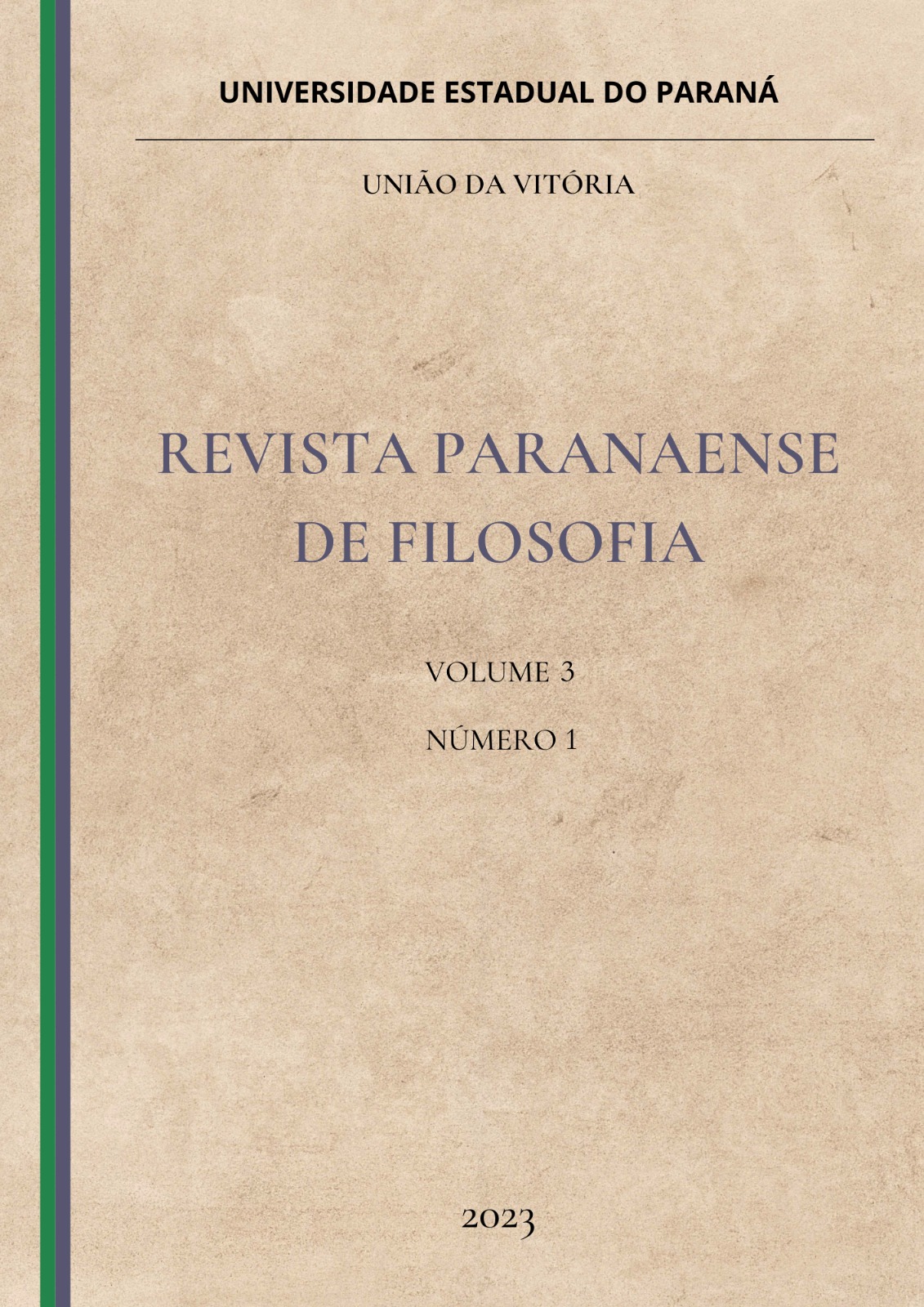A NOÇÃO DE "PREÂMBULOS DA FÉ" EM TOMÁS DE AQUINO
DOI:
https://doi.org/10.33871/27639657.2023.3.1.7635Palabras clave:
Aristóteles, Existência de Deus, Preâmbulos da Fé, Suma Contra os GentiosResumen
Neste artigo, procurarei estudar a noção de “preâmbulos da fé” (praeambula fidei), tal como se encontra nas obras de Tomás de Aquino. Nem sempre essa noção é apresentada com essas palavras exatas. Mas é possível encontrar uma doutrina coerente desde as obras mais juvenis até as obras mais maduras de Tomás de Aquino. Farei a tradução de passagens que não tiverem sido ainda traduzidas ao português. Para fazer este estudo, irei me basear nos trabalhos de dois autores: John Wippel e Dennis Brand. E também, seguindo o exemplo desses autores, estudarei a utilidade que Tomás de Aquino atribui às verdades filosóficas na Suma Contra os Gentios, onde parece claro que Tomás usa tais preâmbulos da fé. Como resultado, poderemos ver a importância que Tomás de Aquino confere a certos conhecimentos demonstrados pelos filósofos, principalmente por Aristóteles, como, por exemplo, o conhecimento de que Deus existe. Veremos que, para Tomás de Aquino, estes conhecimentos estão pressupostos nos artigos de fé.
Descargas
Citas
ASHLEY, B. The way toward wisdom: An interdisciplinary and intercultural introduction to metaphysics. Notre Dame: University of Notre Dame Press, 2006.
BRAND, D. J. Philosophy and the preambula fidei in Saint Thomas Aquinas. Dissertação (Mestrado em Filosofia), University of Ottawa, Ottawa, 1977.
DAVIES, B. Thomas Aquinas's Summa Contra Gentiles: A Guide and Commentary. New York: Oxford University Press, 2016.
DAVIES, B.; STUMP, E. (ed.). The Oxford Handbook of Aquinas. New York: Oxford University Press, 2012.
JENKINS, J. Knowledge and faith in Thomas Aquinas. Cambridge: Cambridge University Press, 1997.
MCINERNY, R. Praeambula fidei: Thomism and the God of the philosophers. Washington, D.C.: The Catholic University of America Press, 2006.
TOMÁS DE AQUINO. Corpus Thomisticum. S. Thomae de Aquino. Opera Omnia, 2019. Disponível em: https://www.corpusthomisticum.org/iopera.html. Acesso em 14 mar. 2023.
____________. Faith, reason and theology. Question I-IV of his Commentary on the De Trinitate of Boethius. Translated with introduction and notes by Armand Maurer. Toronto: Pontifical Institute of Mediaeval Studies, 1987.
____________. The Summa Theologiae of St. Thomas Aquinas. Second and revised edition, 1920. Literally translated by Fathers of the English Dominican Province. Disponível em: https://www.newadvent.org/summa/. Acesso em 14 mar. 2023.
____________. Summa Contra Gentiles. Book One: God. Translated by Anton C. Pegis. New York: Hanover House, 1955.
____________. Suma Contra os Gentios. Volume I, Livros I e II. Tradução de D. Odilão Moura, O.S.B. Caxias do Sul: Universidade de Caxias do Sul, 1990.
____________. Suma de Teologia. Coordenação geral de Carlos-Josaphat Pinto de Oliveira. São Paulo: Edições Loyola, 2009.
____________. Truth. Volume II. Questions X-XX. Translated from the definitive Leonine text by James V. McGlynn, S.J. Chicago: Henry Regnery Company, 1953.
WIPPEL, J. F. The metaphysical thought of Thomas Aquinas: From finite being to uncreated being. Washington, D.C.: The Catholic University of America Press, 2000.
____________. "Thomas Aquinas on philosophy and the preambles of faith". In: Metaphysical themes in Thomas Aquinas III. Washington, D.C.: The Catholic University of America Press, 2021, pp. 73-97.
Descargas
Publicado
Cómo citar
Número
Sección
Licencia
Derechos de autor 2023 Revista Paranaense de Filosofia

Esta obra está bajo una licencia internacional Creative Commons Atribución 4.0.
Artigo publicado em acesso aberto sob a licença Creative Commons Attribuition 4.0 International Licence.
Os autores cedem o direito exclusivo de primeira publicação à Revista, sendo o trabalho licenciado simultaneamente sob a licença Creative Commons Attribution 4.0 International (CC BY). Esta licença permite que terceiros remixem, adaptem e criem a partir do trabalho publicado, atribuindo o devido crédito de autoria e publicação inicial neste periódico. Os autores têm autorização para assumir contratos adicionais separadamente, para distribuição não exclusiva da versão do trabalho publicada neste periódico (por exemplo: publicar em repositório institucional, em site pessoal, publicar uma tradução ou como capítulo de livro), com reconhecimento de autoria e publicação inicial neste periódico.



